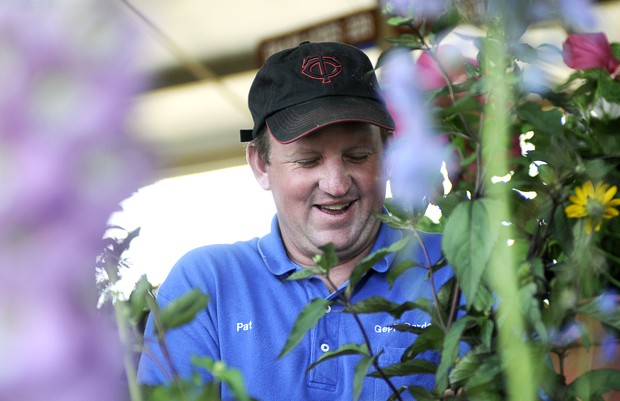With summer in full swing, farmers markets and gardens are cropping up all over the city and there may be quite a few more next year with a new initiative in place that has Minneapolis officials on record supporting the growth of the local food economy and culture in the city. Homegrown Minneapolis, an initiative started this summer at the behest of Mayor R.T. Rybak and his wife, Megan OâÄôHara, seeks to increase the amount of locally produced and available foods in Minneapolis via policy changes, promotion, education and partnering with more than 100 stakeholders throughout the area. âÄúItâÄôs amazing how many issues come together around the food we eat,âÄù said OâÄôHara, who is a co-chair of the initiative. âÄúIt brings the issues of sustainable agriculture together with peopleâÄôs health and lifestyle, the way that we express our values with what we purchase and the economic health of an area.âÄù OâÄôHara said she and Rybak have been discussing an initiative directed at locally grown food as far back as 2005, but it was between January and April when city and community stakeholders got together to create recommendations related to increasing opportunities for more farmers markets, community gardens, small urban agriculture and commercial use of local foods. From there, the Homegrown Minneapolis Steering Committee boiled down these suggestions into six broad recommendations, including adopting a resolution from the city of Minneapolis and putting them on record supporting the growth of the local food economy. The Minneapolis City Council unanimously passed the resolution at the end of June, and established a task force consisting of representatives from the city and the community who are working to bring these recommendations to fruition. These changes could mean a new look at vacant properties or spaces up for redevelopment. Instead of construction, more space will now be considered for community gardens or other small urban agriculture. But the impact of these changes wonâÄôt be felt immediately. âÄúPeople have come up to me and expect these recommendations to start working already,âÄù David Nicholson, manager of the Midtown FarmerâÄôs market, said. âÄúBut the truth is weâÄôve only begun the process. It will take two or three years for people to really feel the effects of Homegrown.âÄù But Nicholson, who has been in the food industry for more than 20 years, said when itâÄôs in full swing, it has great potential to boost jobs and economic opportunity in a down market, and not just for Minneapolis but the entire state. âÄúFor the largest city in the state to take a stand on the importance of food to the local and regional economy âĦ I think that would be tremendous for the state of Minnesota and an opportunity for other cities to take those steps,âÄù he said.
Homegrown and the U
Maggie Adamek, a research fellow in local foods and sustainability at the University of Minnesota , is on one of the four sub steering committees involved with the project. Her job: to find commercial partners in the community to take on more locally grown foods. She already has some local restaurants on board, including Common Roots Café in Uptown and Birchwood Café in the Seward neighborhood. But Adamek said she has hopes that the efforts will spill onto the University campus, creating resources and a culture that will support healthier eating for students. Opportunities for students could come from more surrounding famers markets, job openings and access to healthier foods. The initiative may even have a partner in University Dining Services, which has an already established partnership with Food Alliance Midwest, an organization that provides certification of food products grown with socially responsible agricultural practices. âÄúWe would certainly be interested in looking more at the initiative and potentially forming a partnership,âÄù spokeswoman for UDS,Karen DeVet, said.








